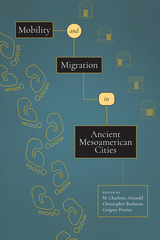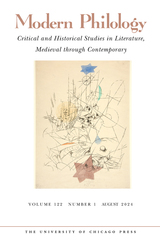5 start with N start with N

Psychologist Wilson Van Dusen explores the secret spaces of our inner world with clues drawn from his own personal experience, his work with psychiatric patients, and his study of Eastern and Western philosophy. Drawing from the insights of Swedish visionary Emanuel Swedenborg, Van Dusen discusses self-reflection, dreams, hallucinations, and the mystical experience.
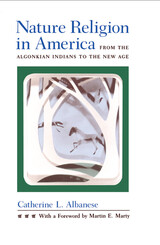
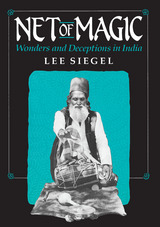
Siegel's journeys take him from ancient Sanskrit texts to the slums of New Delhi to find remnants of a remarkable magical tradition. In the squalid settlement of Shadipur, he is initiated into a band of Muslim street conjurers and performs as their shill while they tutor him in their con and craft. Siegel also becomes acquainted with Hindu theatrical magicians, who claim descent from court illusionists and now dress as maharajahs to perform a repertoire of tricks full of poignant kitsch and glitz.
Masterfully using a panoply of narrative sleights to recreate the magical world of India, Net of Magic intersperses travelogue, history, ethnography, and fiction. Siegel's vivid, often comic tale is crowded with shills and stooges, tourists and pickpockets, snake charmers and fakirs. Among the cast of characters are Naseeb, a poor Muslim street magician who guides Siegel into the closed circle of itinerant performers; the Industrial Magician, paid by a bank, who convinces his audience to buy traveler's checks by making twenty-rupee notes disappear; the Government Magician, who does a trick with condoms to encourage family planning; P. C. Sorcar, Jr., the most celebrated Indian stage magician; and the fictive Professor M. T. Bannerji, the world's greatest magician, who assumes various guises over a millennium of Indian history and finally arrives in the conjuring capital of the world—Las Vegas.
Like Indra's net—the web of illusion in which Indian performers ensnare their audience—Net of Magic captures the reader in a seductive portrayal of a world where deception is celebrated and lies are transformed into compelling and universal truths.
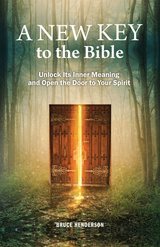
In his vast writings, eighteenth-century spiritual teacher Emanuel Swedenborg offers clarification: beneath the often-confusing literal text of the Bible is a clear inner meaning that directly points to an inclusive, always-loving, always-present God. In A New Key to the Bible: Unlock Its Inner Meaning and Open the Door to Your Spirit, author Bruce Henderson guides the reader through Swedenborg’s interpretation of the Bible, offering up a thought-provoking yet digestible way to understand the Creation story, as well as other famous parables such as Adam and Eve, Noah’s Ark, Abraham and Sarah, Moses, the life of Jesus, and the apocalyptic imagery of Revelation. At each step of the way, Henderson shows how these Scripture stories written thousands of years ago reflect our own spiritual paths and give meaning to the challenges we face along our journey in the present day.
For readers new to Swedenborg, A New Key to the Bible serves as an overview of the thousands of pages Swedenborg wrote about the inner meaning of the Bible. For spiritual seekers who feel a connection to the Bible but are sometimes troubled by its contents, Swedenborg reassures with a transcendent level of understanding about how God wants to inspire us through sacred text.
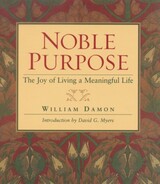
This book describes the personal and spiritual benefits of living life in a way that matters, with an awareness that one's life can reflect a sense of higher purpose no matter what the circumstances. The book draws upon religious, philosophical, and literary writings to show how humans in many cultures and historical epochs have pursued noble purposes by answering God's call as each hears it.
Noble purpose can be pursued both in heroic acts and in everyday behavior. The book shows how ordinary people—teachers, business professionals, parents, citizens—can ennoble what they do by being mindful of its deepest meaning. It also points out that humility is a necessary virtue for those who pursue a noble purpose. Great heroes are bold, courageous, and sometimes audacious in their determination to succeed; but they are also humble in their awareness of their own limitations. Moreover, a person must never violate basic moral laws while pursuing a noble purpose—the means must be as moral as the ends.
Purpose brings coherence and satisfaction to people's lives, producing joy in good times and resilience in hard times. It also presents a paradox: hard work in service of noble purpose that transcends personal gain is a surer path to happiness than the self-indulgent pursuit of happiness for its own sake. The closer we come to God's purpose for us, the more satisfied our lives become.
From the inspiration and examples conveyed in this book, we learn that all individuals have the capacity to discover their own God-given abilities, to learn the world's need for the services they can provide, and to experience joy in serving society and God in their special ways. As theologian Frederick Buechner writes, "The place God calls you to is the place where your deep gladness and the world's deep hunger meet."
READERS
Browse our collection.
PUBLISHERS
See BiblioVault's publisher services.
STUDENT SERVICES
Files for college accessibility offices.
UChicago Accessibility Resources
home | accessibility | search | about | contact us
BiblioVault ® 2001 - 2024
The University of Chicago Press




